Thank you for joining us here at the Austen Connection! You can see all of the conversations including all the podcast episodes here. If you are not signed up yet you can take a few seconds to sign up below to get all of the conversations dropped right into your inbox. Thank you!
Hello, friends!
So great to be here with you. And we’re dropping into our Sunday today with a special event - a new podcast episode! It’s an amazing conversation with a debut author remixing Jane Austen’s Persuasion with all the second-chance stress we love, along with some enemies-to-lovers shenanigans, some Alpha Male energy, and some family dramas and societal pressures our Two Persons are navigating, all fused in to a dynamic New York Muslim family. Mix and stir well!
Like Jane Austen’s Persuasion, The Mis-Arrangement of Sana Saeed, just out this month, chronicles family pressures, class pressures, societal pressures - all the pressures - navigated by two people who once innocently fell into fast love with each other, and are now reunited amidst family conflict and tension. They navigate all that conflict, all that tension, all those pressures, and find their way to each other.
This debut novel is from Noreen Mughees, a writer and an engineer specializing in environmental policy. For her day job Mughees works on environmental justice for under-served communities and immigrant communities and, as it does in Austen, that kind of conflict and examination of power structures also comes out in this book.
As does the romance!
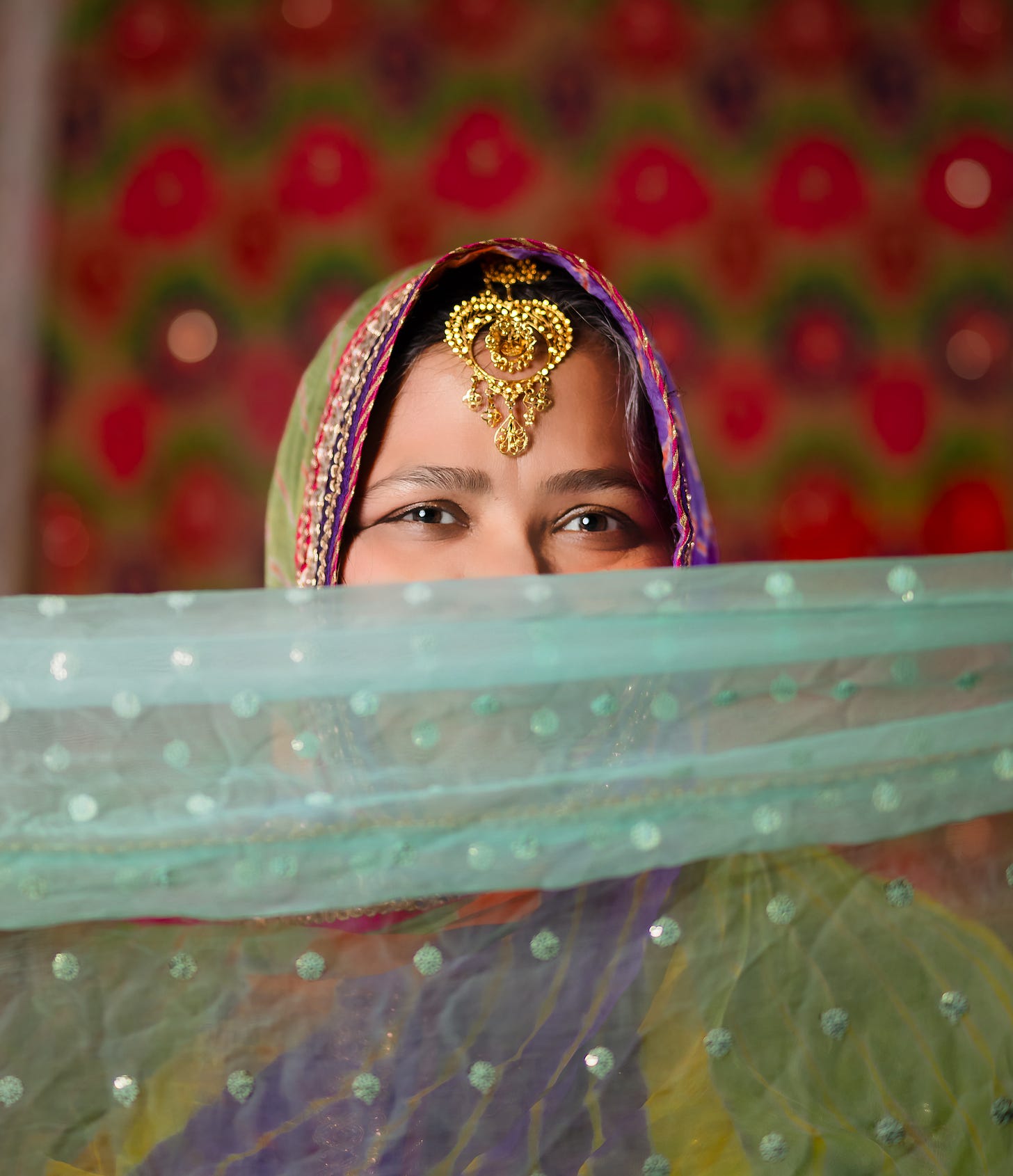
Just like her heroine Sana Saeed, Mughees is navigating life, love, Muslim family and community, and environmental justice issues in her work - and it all comes out in this book. We spoke with Noreen Mughees about The Mis-Arrangement of Sana Saeed as the book was launching, earlier this month. Enjoy this excerpt from our conversation:
Plain Jane
You were just saying that you love engaging with the Austen community. And you said that you sometimes were missing that, growing up in India. Where did you grow up? And how did you discover Jane Austen?
Noreen Mughees
So I grew up in a small town in India, in the province. It's called Uttar Pradesh. And I went to a common school. I don't know if you know about education in India, but common schools are considered like private schools, which have the best kind of education in India. And they have libraries where people donate books. But most of them growing up were classics, because books are expensive. … So a lot of the books that we had in our library at the school that I went to were classics: A lot of Agatha Christie, a lot of Shakespeare, a lot of Austen books. So I think my love for Austen started there. And my love for reading started there. And, you know, I just consumed Austen like crazy. … Nancy Drew, Austen, this is all I read all the time.
But it was hard to find people first of all, who read literature, like consumed literature like me. And there wasn't so much time, leisure time growing up for us, because there was so much outside time built into our day. So I was sort of an outcast, always like reading in my free time where most of the kids were outside playing and things like that.
So I think my love for reading, my love for Austen, sort of started around the same time. But there weren't too many Austenites that I knew of growing up. So you know, moving here and rediscovering reading and writing in Austen, and finding people who loved Austen like me was amazing.
Plain Jane
How did you end up writing a retelling of Persuasion, specifically? … And, did you start out rewriting Austen, or did you start out as a writer who then decided to incorporate Austen into your writing?
Noreen Mughees
I connected a lot in terms of character with Anne’s character, and just the family politics. I felt like they're so wonderful, and so intricate, and so nuanced, you know? And not that Austen doesn't do that beautifully in all her books - I think she does that beautifully in all her books - but specifically Persuasion because … most of the people in her life don't give [Anne] good advice. … Especially people she's close to, you know. So I think to me it's fascinating that she still finds her way among these other people who are constantly pulling her in the other direction. And you know, [Anne] reignites this friendship and this love with this guy she knew years ago and she's always loved.
So I think to me that book has that done so perfectly. And it's also in tune with a lot of Bollywood movies that I grew up watching. Because, you know, a lot of them are… about familial politics and how protagonists kind of fight those familial politics and come together. So I think it's a combination of Bollywood and Austen that just really draws me to Persuasion.
Plain Jane
Let me just say, I love that. And the idea of Anne Elliot just in the mix of all of this and having to navigate her way. And you're right, in your book, in The Mis-Arrangement of Sana Saeed, the pressures are really there. … [But] there's at least investment from the aunties and the older generation. … But there's definitely that pressure and Anne Elliot, like you say, does get bad advice. Even from someone who is rational and who is loving. And she still has to navigate her way. So it's just such a great lesson that that's what is required. Everyone has to navigate their way. At the end of the day, you have to figure it out. … And I think the other part of my question, Noreen was, did you come to writing first and then decide to incorporate Austen into your writing? Or did you become a writer because you wanted to incorporate Jane Austen?
Noreen Mughees
I wouldn't say I became a writer to incorporate Austen. But I think that I'm a big fan of the feelings that Austen invokes. And I always wanted to replicate those feelings in my writing. Those big feelings of, I don't want to use the word morality because I think it's misconstrued so much. But I think … Austen always sort of finds a way to say, “Oh, you know, this is the right thing to do. And this is what my protagonists are going to do. And they're not going to be inconsiderate of the people around them, even though they want certain things in their life.” So I think I really like that feeling of community and the feeling of family and the togetherness that she invokes.
I'm a big fan of the feelings that Austen invokes. And I always wanted to replicate those feelings in my writing. Those big feelings of, … community and the feeling of family and the togetherness that she invokes.
Because she almost always has these big casts, right? And I write big casts. So I think that's the kinship, that to this day I find it … so inspiring. And I try to emulate that in my writing, obviously, in my own way.
… But my first book I wrote was at the age of 12. And it was a mess. But it was just, you know, I had what was written in my life. Like, I think I was writing more towards the journalism type of thing because in school I would always write letters to the editor about like, hot issues and how I felt about them. So I gave up fiction writing for a while. And then I sort of found my love. I was reading, but I didn't really necessarily have the time to write. But I realized that time doesn't just happen, you have to make time. So finally, a friend of mine pushed me into, like, this idea of, you can't find a cabin in the woods somewhere and go write. You just have to find it in the chaos of your life, some time to write.
Plain Jane
We can't all be Henry David Thoreau. And even Thoreau had someone doing his laundry, famously, so.
Noreen Mughees
I know! So it's like, I found my way back to writing. And when I did, I, you know, found my love for writing characters like Austen …
Plain Jane
So okay, I have to ask you about tropes, Noreen. We all love the Second Chance tropes. And it's so interesting that Austen was not trying to create romance tropes necessarily, we would imagine. Not intentionally. But just somehow managed to, in these novels that are not necessarily romances, but that are, you could almost say philosophical treatises, and feminist treatises before that was necessarily a thing. (Well, it's coming right on the heels of Mary Wollstonecraft. So there were feminist treatises out there.) But you have to think that that was what was influencing Austen a little bit more than the mashup of tropes, and romance tropes that we all love. But nevertheless, she started something. And we all love the Second Chance romance of Persuasion. But you also manage to have in here, not only that Second Chance trope, but the friends-to-lovers [trope], and at the same time, the enemies-to-lovers, all at the same time. Simply because our Two Persons meet each other later, and don't recognize each other and don't like each other. But yet they were childhood friends. I don't think I'm giving too much [away] because that's almost the setup for this. I hope it's not a spoiler. But I just wanted to ask you, what are your favorite tropes? And was this sort of mashup intentional and complicated to write?
Noreen Mughees
I mean, Second Chance is my favorite trope. You know, people don't like it. Some people hate it. Some people love it.
Plain Jane
It’s stressful!
Noreen Mughees
It is, because you know, the first time around, it didn't work out. So what is to say it's going to work out the second time?
Plain Jane
Don’t do this to us!
Noreen Mughees
Yeah, exactly. … In this case, because there was external factors really, and not their own internal acts that drove them apart. It works the way I wanted it to work, you know what I'm saying? Because, like, for me, it's hard to redeem characters that are, I don't know, the cheating trope or like, you know, there's the certain tropes that I cannot write because I can't justify them in my personal life, and I can't redeem them in writing. So … I think it's my favorite trope to read and write. Only if it's done in a certain way. …
It wasn't difficult to write because I'm a pantser, I don't plot. So like, I have an idea of how my characters are going to go. And they, like, behave in a certain way. Sometimes they don't listen to me, and they behave in a certain way. I didn't start to write them as enemies. I think it just sort of developed as the story developed for me. But yeah, it was difficult, in a way. I had to do it where they weren't jerks to each other. … And then how do you come from that to love, you know? And the kind of love that I wanted to emulate, which was Austen's characters. … It's hard to do that if they're, like, total jerks to each other. So, yeah, it's difficult to do.
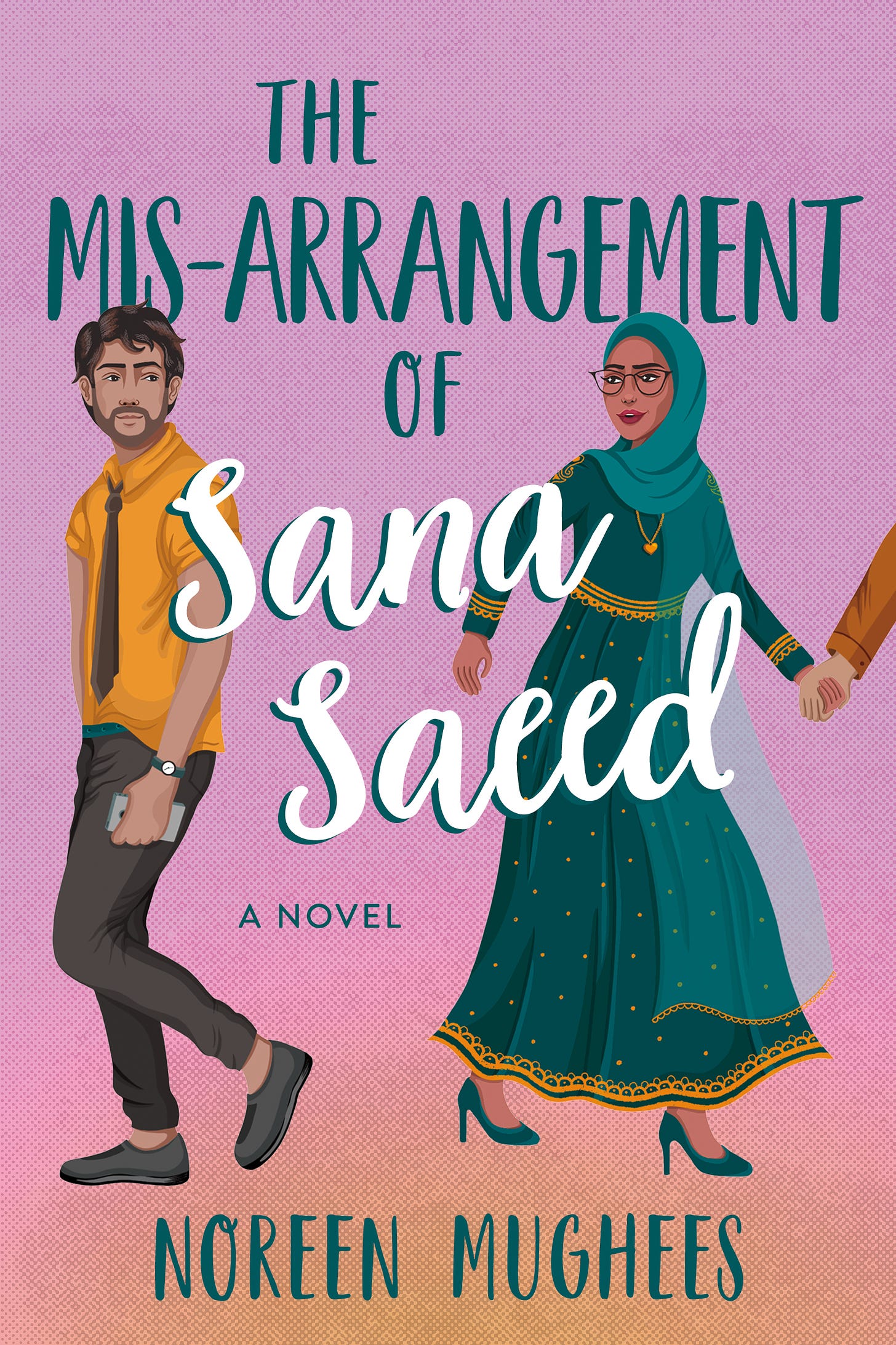
Plain Jane
It is, and you really pull that off, I have to say. It's a really delicate balance, because you also have some Alpha Male kind of vibe going on there too. Like, this love interest in The Mis-Arrangement of Sana Saeed, he's just extremely impressive. He's a bit of an Alpha Male, but he's always pulling for the underdog, including - and I don't think this is a spoiler - [Sana’s] little brother who's on the spectrum, and very kind of visibly on the spectrum. And so [our two protagonists are] mean to each other. But we like that he is really supporting and pulling and sticking up for and defending the underdog all the time. And this little boy who we've already fallen in love with, actually, in the first few pages: He loves his McDonald's sundaes, and Happy Meals, and our main character just really loves him and is actually motivated by him. [There are ] so many things that you've set up in this that direct our motivations and come together to have us really liking these people who don't like each other, somehow. So, yeah, very complicated to do. But I have to say it's really a pleasure. And does Austen help with that?
Noreen Mughees
Yes, yes. Oh my God. I mean, I think about the relationship that Anne had with her father. You know, it is such a nuanced [relationship]. Like, it wasn't just that he was this vain person who did these things. But, like, she did have deference to [her] father about certain things. [And] you know … the relationship she had with her mother, and the relationship she has with her sisters. … It is so nuanced. And it is so well done. And only Austen can do it without painting them as villains completely. … And I think that's what I've learned from her books. So much is like, Darcy is not the bad guy that he is in the first act of the book. And she does this so well. And I think that's what I try to do with my characters is, like, I try to show them as: everybody has good or bad days, and everybody has awesome days, even though the rest of their life has been crappy to them. You know, and, [Sana Saeed’s] mother, for example. She's had a difficult life.
Plain Jane
She’s worked at McDonald’s.
Noreen Mughees
Exactly. Yeah. And she's a single mom who had no money and everything that she had in her life [was] taken away from her. And so she wants certain things for her daughters and her son. And that's why she is the way she is. So like, that's what I love about Austen. And I try to do that all the time with my characters, not paint them as completely good and completely bad. But somewhere in the middle and human.
Plain Jane
And I think you're so right. Austen is really, you know, a purveyor of Realism and probably an early if not the first purveyor of Realism [in the novel]. And that, and the philosophical balance, the philosophical realities of human nature, is something she's totally experimenting with. And I feel like she's been sort of undervalued on the philosophical side of things just because she's writing within a Marriage Plot.
But that [Realism] makes her - what I call the - decoy heroes. And you have one here in The Mis-Arrangement of Sana Saeed as well - which is that charming guy who's like, ridiculously charming and in the right place at the right time. And also smart, and also seems to be rather kind. And we're all drawn to him as our main character is. It's Wickham, it's Willoughby to a lesser extent. And it's your Adam. And it’s just really such a charming, perfect guy. And Austen, like you've mentioned about Darcy, is showing that balance that we're not all good or bad, but that there are certain characteristics you should go for. You should be going for honesty, you should be going for genuine kindness. Make sure someone’s willing to listen to you and learn and grow. … I think that's what we love about Austen love stories, is there's a philosophical basis and exploration of human nature, that rings true for us even if we can't articulate it. But we love it in those choices that you see a heroine having to make.
Noreen Mughees
Yeah, you know, Adam, being a nice guy in terms of what her mother was looking for in a match for her, right? She wants this, this guy who's from a good family and has, you know, pedigree and all that. But it's just not the one that [Sana] wants, or thinks is the right guy for her.
And a lot of people have said, he's like, ‘Oh, I was Team Adam. I think Adam deserves Sana.’ And I was like, I think the big ingredient missing in the relationship was love. That she had experience with someone else. And I think that's where a relationship with Wentworth comes in. She had experienced that love and that's why, you know, you can't replicate it with another thing. It's almost like, people have baggage. And so she had that baggage, she had experienced that. So [there was] no coming back from that. …
So yeah, I think I wrote Adam, like, in line with a lot of Austen characters, especially Willoughby’s character. I think he’s fascinating. Because the whole thing is, he is in love with Marianne I think, you know?
Plain Jane
I think so.
Noreen Mughees
She doesn't explicitly say that. But that's Austen. … I love it. It's beautiful. … With Adam and Sana, he is not letting himself fall for her. And that's the flaw. … He doesn't want to take the risk because he's been hurt before. … And you can't be that way in relationships. You you have to be willing to take the risk …
Plain Jane
You're absolutely capturing that. That calculation that everyone's having to make between, as you say, the risk and love. … So many things at stake to do with family and finances, and welfare of everyone. … And today, we still have to think about healthcare, we still have to think about care for our loved ones. We still have to calculate these things and balance them in our choices, even for love. And Austen's showing that balance.
So basically all that to say: Yeah, I love it that Austen really doesn't have a take when you really know Austen. She might not have a take. We don't have to try to decode [her meaning.] She herself wasn't decoded. But Persuasion I agree with you is where you see that best, the complications and complexities of life best re-created through a novel.
But Noreen, you mentioned in all of this, you mentioned class. You overtly address class right away. And I love that. Would you like to see more class just kind of overtly handled in romcoms?
Noreen Mughees
Yes! And my third book that I'm currently writing is a Great Expectations retelling, all about class, but it's set in India. And it just explores class, because it still exists in India, to be honest: that divide between the rich and the poor. And … I grew up with it in India, the caste system and the class system. So it's deeply ingrained in my writing, because that's my lived experience. And I bring it up, because even in a country like America, you would think that we're one of the wealthiest nations of the world, and this wouldn't exist. But it does exist. Especially in tight-knit communities. Immigrant communities will come to this country with so little, some of us will come to this country with so little. And it's a way for us to survive, you know, and live the American life. So it's always going to be part of my books, that class system that exists here, and that I grew up with. Because my characters will not be billionaires and have everything. They will always struggle to get to a certain level because that's part of their growth. And then like Sana’s mom - that she wants her to have a stable life comes from the fact that everything was taken away from her. … It's sort of a lived experience. So it has to reflect, especially in my debut. It has to reflect in my books.
Plain Jane
That's wonderful. I love that. And there was something that was really lovely about characters and a romcom just like hanging out at McDonald's. I think that that's because, you know, so many of us normal people are not doing as well. We're just not doing as well, the disparities and the income gaps are increasing. I work for a public university, funding’s a big problem. I've definitely struggled financially in my life. Even though it might not look like it on the outside. But you know, things are tight for a lot of people. And so the answer for a lot of us is just getting a sundae from McDonald's. So it was really cool. It's really empowering to see that reflected in romcom.
Noreen Mughees
I will always write about class. … When we were trying to categorize my book, because it's like the thing that publishers do, I was like, ‘I cannot write just like a fluffy romcom that is an escape from reality,’ which I mean, I have a lot of respect for to be honest. I mean, I read them all the time. But writing for me is, I have to pull from real-life experiences. And I was like, I was never in an escapist world when I was living in India. And even here, like, when I came with two suitcases to this country, it was never like an escapist romcom type of life for me. So I don't know if I can ever write from just that escapist point of view.
Plain Jane
And neither did Jane Austen.
Noreen Mughees
Right. And, like I said, all the power to people who can do that. And I love them. And I read them all the time. But it just like something that I don't think I can ever write.
Plain Jane
Well, tell me tell me more about that Noreen, I know that you at the moment work as an engineer, and your day job comes through [in the book], which was really fun part of this. With environmental issues, and engineering and law, which is where your day job sort of intersects as well. What does that do for your process of writing? And what were you doing arriving in this country with two suitcases? There's two big double questions!
Noreen Mughees
Yeah, so I came in as a student. So we only were allowed to bring two suitcases. And it was a big upheaval in my life, because I had never lived away from home. So basically packing my whole life in two suitcases. Like you're asking me to take my journals, to take my beloved things, memories of my childhood, and everything in two suitcases. … I came here with very little and on a scholarship, and a very limited budget. And I could, as an international student, I could only work so many hours at pursuing the graduate degree. So yeah, I don't come from money. My father died when we were young. So my mom was a widow, and she was a stay-at-home mom, and didn't work, so financially … we never had too much money. And America was sort of like my pathway to better things for my family and for myself. So I think a lot of it came from there - like, that wanting to do better for myself. And you know, [to] give my mom a better life and myself a better life came from that. And my day job is, a lot of it that I'm working on currently is about immigrant communities and trying to make life better for them environmentally. Because there's a lot of communities that live in, especially in North Jersey where there's a lot of industry there, a lot of air pollution. And money shouldn't have a monopoly on the environment. Except it does sometimes. And so I'm very active in [an] environmental justice initiative. Water and air and everything - there shouldn't be a monopoly on that: why should immigrant communities or poor communities suffer with environmental health risks because they can't afford to be in these green-belt communities with, like, a lot of open air and gardens? [They’re] shouldn't be a monopoly like that.
So I think that's where I am with my day job. And I wanted to bring some of that aspect, because it is a real issue, into my book. Like I said, I can't just write an escapist romance. So I wanted to bring some light on that topic too.
Plain Jane
That's wonderful. Well, Noreen, this has been such a pleasure to talk to you. Thank you so much.
And thank you, friends, for joining this conversation today. Find everything you need to know about this new novel at Noreen Mughees’ website here. You can get the book, published this month from Penguin Random House, here.
Hope your Sunday is beautiful, magical, and maybe even escapist, unlike real life. It’s a balance. Let’s all make sure to incorporate things like tea, fiction, romance, and Jane Austen, into our weekend.
Meanwhile, take care and stay well,
Plain Jane
Links and Community:
Coming from PBS for all you period-drama fans: We’re in the countdown to the fourth season of two fun series - coming right after the holidays, in January 2024. First, All Creatures Great and Small with the quirky, heartwarming shenanigans from Skeldale House. With James and Helen starting their new life together, and possibly starting a family?, here’s hoping for lots of drama from Mrs. Hall and also for Siegfried, the grumpiest hero ever, played wonderfully by Samuel West.
And also from PBS Masterpiece, we have Miss Scarlet and The Duke returning in January 2024 for a fourth season. We’ve got a lady detective, a Victorian England setting, and a grumpy-sunshine chemistry going on in this series. Anyone out there watching this? Anyone finding Austen connections?
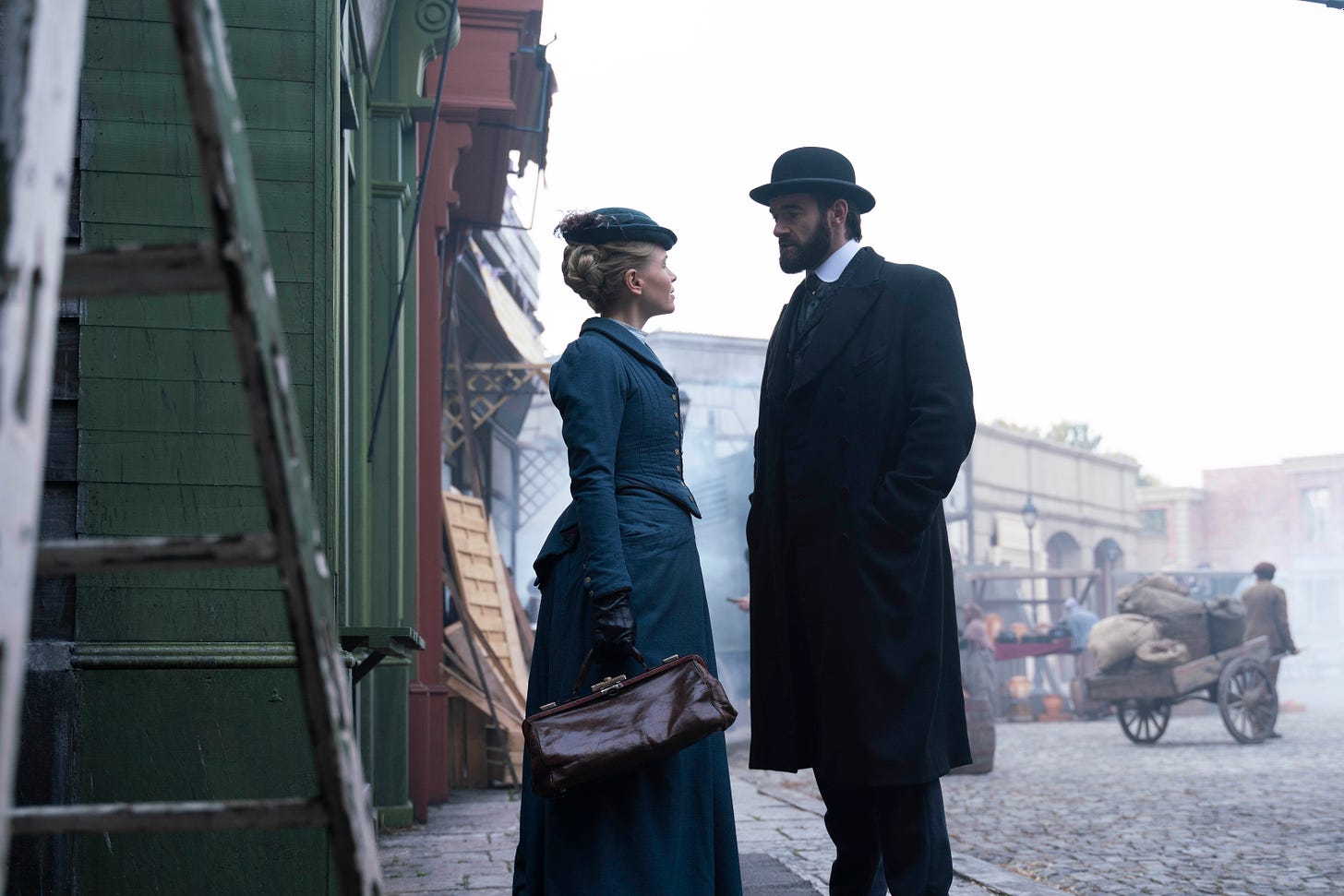
My Shakespeare obsession continues, and at some point the parallels between Shakespeare’s romcoms (yes, let’s call them that) and Austen’s comedies will appear in this space. Currently ruminating on blog posts about Fight Scenes. About Marriage. About Shakespeare. About Love through the eyes of philosopher and critic bell hooks. And how it all connects to Jane Austen. Stay tuned!
Meanwhile, This Old Globe production featuring UK actors Stephen Fry (yes, a fave for anyone who like me hung out a lot in London in the 90s), Mark Rylance (always brilliant), and Johnny Flynn (a fave for you Emma 2020 fans) is guaranteed to be a thrill - I dare you to watch this and not feel happy. The way extremely tall Mark Rylance plays Twelfth Night’s Olivia, fluttering passive-aggressively and gliding in a massive ghostly frock across the stage, is worth the admission price. And there is a price! But if you can fork out the £9.99 (in pounds sterling) it is so worth it. Perhaps you saw this live! If so, let us know!In the meantime, here’s a YouTube clip of a great scene. The setup: Malvolio, played here by National UK Treasure Stephen Fry, has been tricked into believing that Olivia (Mark Rylance) is flirting with him and has asked him to wear bright yellow “cross-garters.” It’s all a trick managed by a fake letter, leading to the confusion and cross-communications of this scene. You can see how the Old Globe actors continuously and wonderfully let the live audience in on their jokes. Enjoy.
You can explore the various options of video on-demand from the Old Globe here - the production values are excellent and it really feels like you are in the audience. It might even be better than being in the audience.
Thank you for joining us at the Austen Connection! If you enjoy these posts, please feel free to share and invite others into this community!


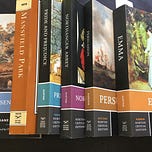
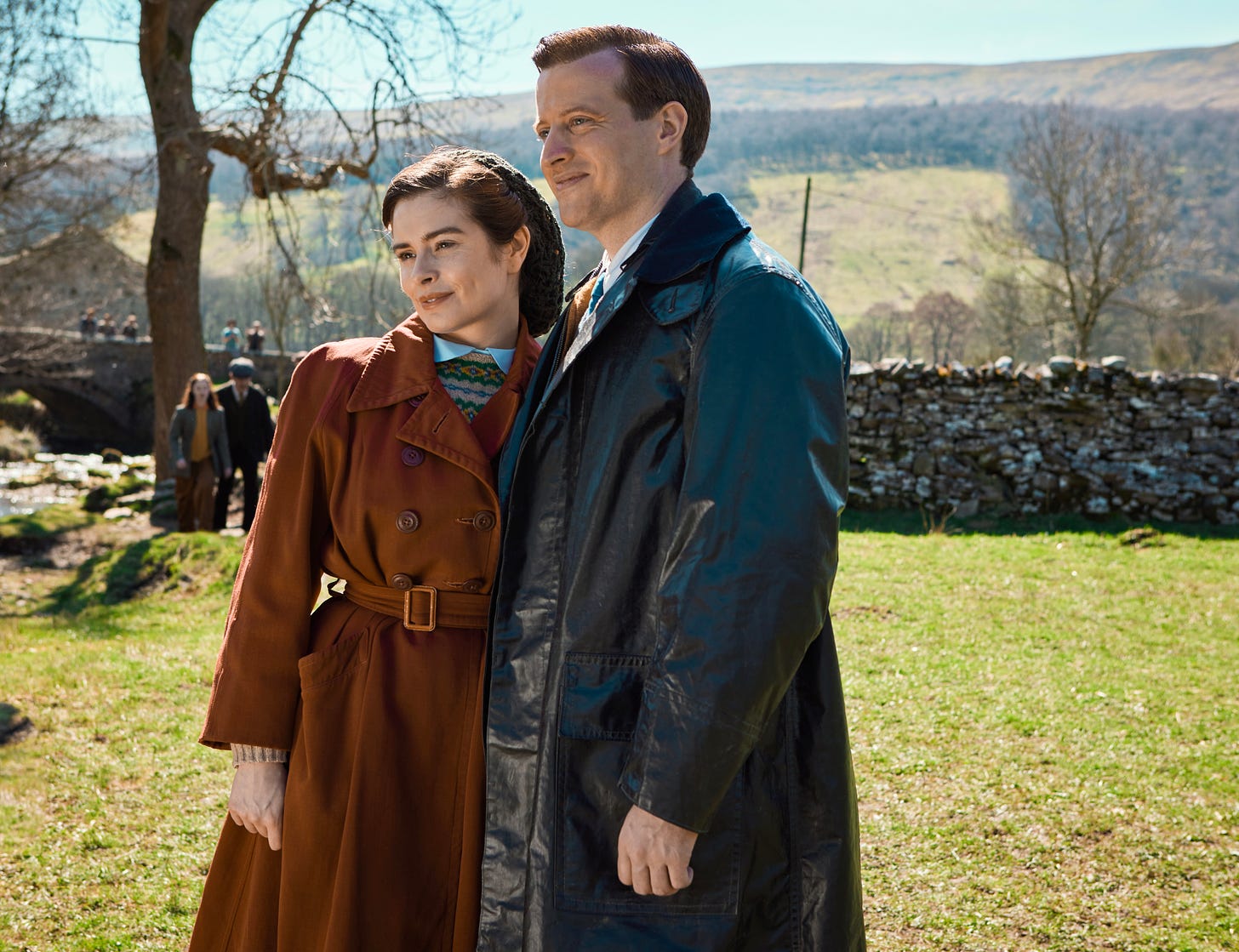





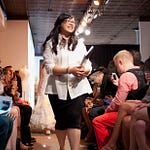
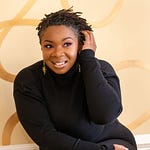
Second chances and Muslim romances